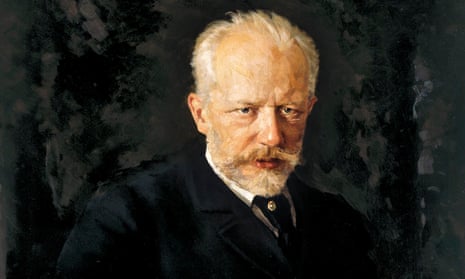The Cardiff Philharmonic Orchestra is facing ridicule after removing the Russian composer Tchaikovsky from its forthcoming programme due to the conflict in Ukraine.
Pyotr Ilyich Tchaikovsky’s 1812 Overture, which celebrates Russia’s defence against the invasion of Napoleon and is notable for featuring a volley of cannon fire, was due to be included in the orchestra’s Tchaikovsky concert at St David’s Hall on 18 March, but the entire programme has been abandoned due to events in Ukraine.
A statement on the venue’s website said: “In light of the recent Russian invasion of Ukraine, Cardiff Philharmonic Orchestra, with the agreement of St David’s Hall, feel the previously advertised programme including the 1812 Overture to be inappropriate at this time. The orchestra hope you will continue to support them and enjoy the revised programme.”
The orchestra will instead present a programme centred on Antonín Dvořák’s symphony No 8. It will also include John Williams’ the Cowboys overture and a performance of Edward Elgar’s Enigma variations in the second half.
The Cardiff Philharmonic’s moves comes after the Russian conductor Valery Gergiev was dropped by his management after he refused to condemn the regime of Vladimir Putin.
The treatment of Gergiev prompted some disquiet among rightwing commentators but the decision to cancel Tchaikovsky has been more widely derided in both the UK and the US.
The comedian Geoff Norcott tweeted: “Cancelling a Tchaikovsky concert is so daft ordinary Russians will write it off as mad Vlad overdoing the propaganda.”
Cancelling a Tchaikovsky concert is so daft ordinary Russians will write it off as mad Vlad over-doing the propaganda.
— Geoff Norcott (@GeoffNorcott) March 9, 2022
Cellist Max Weiss, editor of Baltimore magazine, said “everyone needs to get a grip”. Writing on Twitter she said: “We had our HSO concert on Saturday. We began the program, fittingly, with the Ukraine National Anthem. We then went on to play Tchaikovsky’s Piano Concerto No 1.”
We had our HSO concert on Saturday. We began the program, fittingly, with the Ukraine National Anthem. We then went on to play Tchaikovsky's Piano Concerto No. 1. Everyone needs to get a grip. https://t.co/SAWFGjTxyJ
— Max Weiss (@maxthegirl) March 9, 2022
Matt Duss, the foreign policy adviser to former US presidential hopeful Bernie Sanders, said that the orchestra’s move was “doubly absurd because Tchaikovsky spent a lot of time in Ukraine, and incorporated a lot of Ukrainian folk music and stories into his work”.
Doubly absurd because Tchaikovsky spent a lot of time in Ukraine, and incorporated a lot of Ukrainian folk music and stories into his work. https://t.co/mhF5l6HaNm
— Matt Duss (@mattduss) March 9, 2022
Former MP turned chatshow host George Galloway described the move as the equivalent to “fascistic book-burning”.
Many have pointed out Tchaikovsky shunned nationalism.
Billy Binion, editor of the US magazine Reason, tweeted: “The irony. Tchaikovsky was one of the first (and only) composers to eschew Russian nationalism and try to integrate his music with the west.
“Also, he died over a century ago. We’ve lost our minds. Tchaikovsky composed some of the richest, most affecting music I’ve ever heard. We need more of that in times like these, not less.”
Martin May, the director of the orchestra, explained the context behind the decision. In a statement he said: “A member of the orchestra has family directly involved in the Ukraine situation and we are trying to respect that situation during the immediate term. There were also two military themed pieces as part of the programme that we felt were particularly inappropriate at this time.”
He added: “We were also made aware at the time that the title ‘Little Russian’ of Symphony No 2 was deemed offensive to Ukrainians. Whilst there are no plans to repeat the Tchaikovsky concert at the moment, we have no plans to change our summer and autumn programmes which contain pieces by Rachmaninoff, Prokofiev and Rimsky-Korsakof. So this is a one-off decision made with the best of intentions and there is no intention to exclude Tchaikovsky in particular. He is one of my favourite composers. We are aware that, whatever decision we made, it would not go down well, so we are stuck between a rock and a hard place.”
